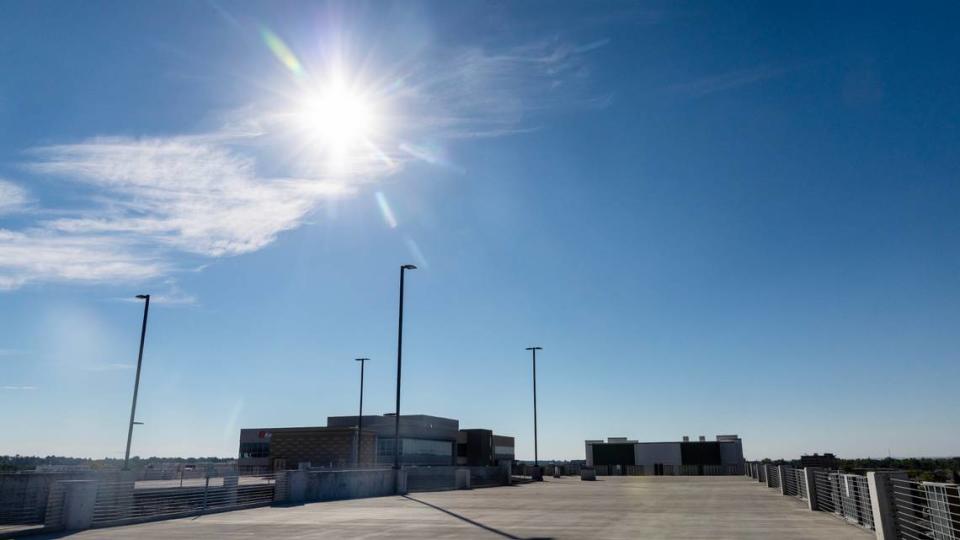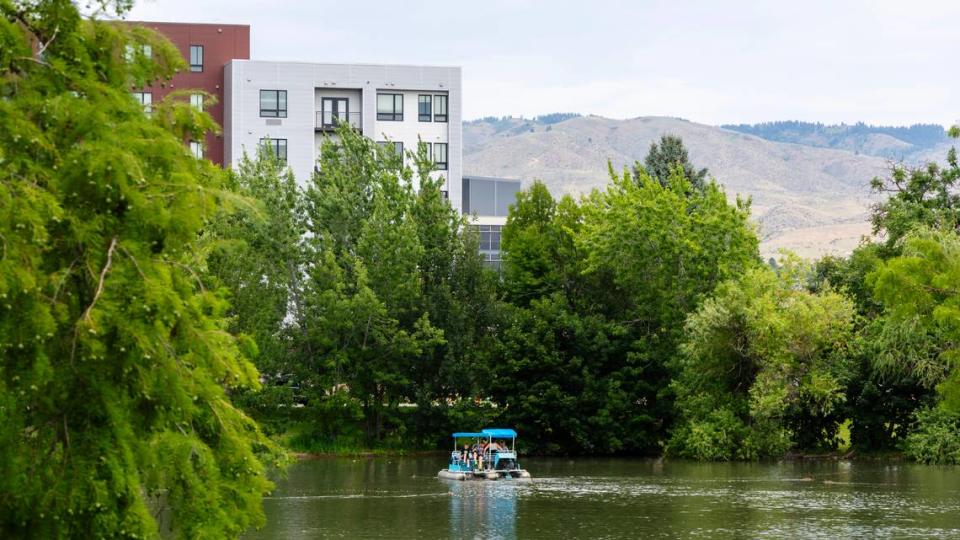Earth recorded its hottest-ever month in July. But was it also Boise’s hottest-ever month?
The World Meteorological Organization declared at the start of August that July 2023 was officially the hottest month on record.
The first three weeks of the month were the hottest three-week period on record, and July 6 was officially the hottest day on record, with an average worldwide temperature of 63 degrees. The average worldwide temperature includes the frigid cold of the poles and the searing heat around the equator.
July 5 and 7 measured slightly cooler than July 6, according to WMO, making up the top three hottest days in recorded history.
How hot did Boise get?
Boise didn’t escape the heat, either. A “heat dome” in the American Southwest resulted in near-record-breaking heat in Boise, with temperatures soaring to 105 degrees on two separate days in mid-July.
Overall during July, Boise had eight days that reached at least 100 degrees and had an average high of 97.2 degrees.
As heat waves blasted North America, Europe and Asia, weather in Boise was somewhat easier to endure. As parts of the country such as Phoenix set the hottest month on record for a U.S. city, Boise’s July only ranked as the 6th-hottest July in city history.

Was this Boise’s hottest July on record?
Since records began in 1865, a typical July in Boise sees an average high temperature of 92.7 degrees and an average low of 61.9 degrees for an average 24-hour temperature of 77.3 degrees.
But a new normal in hot temperatures is emerging for Boise. As Benjamin Hatchett, a research assistant professor with the Desert Research Institute, previously told the Idaho Statesman: “This summer will now be the coolest summer we experience.”
This past July, the average high was 97.2 degrees, and the average low was 65.6 degrees, making the 24-hour average for the month 81.4 degrees.
Here’s how this past July stacks up against other toasty summers in the City of Trees. Each month is measured by the average 24-hour temperature:
2021 - 83.8 degrees
2008 - 83.1 degrees
2017 - 81.6 degrees
2013 - 81.5 degrees
2006 - 81.5 degrees
2023 - 81.4 degrees
Notably, the top six have occurred since the turn of the 21st century. United Nations Secretary-General António Guterres has said publicly that he believes it could have been avoided.
“For vast parts of North America, Asia, Africa and Europe – it is a cruel summer. For the entire planet, it is a disaster,” Guterres stated in a news release. “And for scientists, it is unequivocal – humans are to blame. All this is entirely consistent with predictions and repeated warnings. The only surprise is the speed of the change.”
Korri Anderson, a meteorologist with the National Weather Service in Boise, agrees that human-caused climate change is a major factor for soaring temperatures.
“There’s more blacktop and cement around these areas that are contributing to (increasing temperatures) as well, as the cities get bigger,” Anderson said.
It’s no surprise that Boise’s rapid growth would coincide with rising temperatures. In July 2021 — the hottest July on record in Boise — Ada County’s population eclipsed the half-million mark for the first time.
From 2010 to 2023, Ada County’s population has grown from 392,365 to 525,747.
Looking to August weather in Boise

It may be hard to believe after July’s heat, but Boise is on the precipice of having below-average temperatures for the time of year. But don’t be expecting to pull out your sweaters just yet.
Boise’s average high for early August is 94 degrees, and the Weather Service forecasts highs between Thursday and Tuesday will range just under that between 90 and 93 degrees.
Going, going, ...going... GONE!
Temps should stay below normal starting Thursday through the weekend. #idwx #orwx pic.twitter.com/RRdzHbufN0— NWS Boise (@NWSBoise) July 31, 2023
The Climate Prediction Center, an extension of the National Oceanic and Atmospheric Administration, has Boise in a narrow corridor of seeing equal chances of above-average and below-average temperatures over the next 6-10 days.
The same outlook also forecasts Boise having a 33-40% chance of higher-than-average rainfall. But, as noted by the Weather Service in a tweet, early August is the driest time of the year for Boise, and it doesn’t take much for the city to see above-average rainfall — the city only averages 0.17 inches of rain in August.


